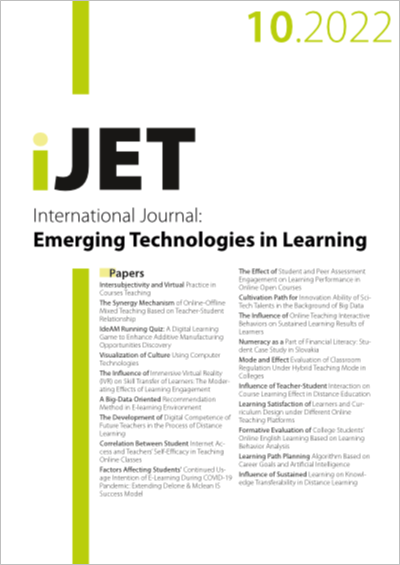The Influence of Immersive Virtual Reality (IVR) on Skill Transfer of Learners: The Moderating Effects of Learning Engagement
DOI:
https://doi.org/10.3991/ijet.v17i10.30923Keywords:
Immersive Virtual Reality (IVR), skill transfer, moderating effectAbstract
Immersive virtual reality (IVR) is a full integration of virtual simulation and reality through computer engines and digital technologies. In particular, upon entering the field of education, IVR triggers the comprehensive reform of the education industry, realizes the interaction between virtual and real worlds, shapes a more highly immersive teaching scene, and meets the personalized needs of different learners. Thus, exploring the transfer of learning skills under IVR and traditional teaching modes is of great significance to understanding their causal relationship. Results show that training methods have significant differences in post-test scores. Immersive virtual experimental teaching plays a significant role in the skills transfer of learners, and learning engagement has a significant moderating effect in the above relationship. In this study, the results have important reference value for enriching the design of immersive teaching content, improving its design of translation, and promoting the skills transfer of learners to higher-order thinking knowledge.
Downloads
Published
How to Cite
Issue
Section
License
Copyright (c) 2022 Peng Yang, Zhi Liu

This work is licensed under a Creative Commons Attribution 4.0 International License.


